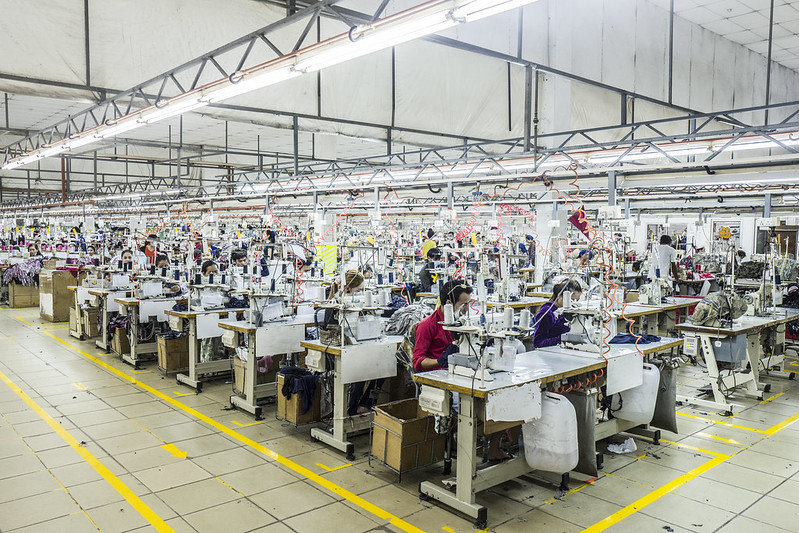ការឆ្លើយតបទៅនឹងកូវីដ-១៩៖ គោលនយោបាយ និងការគ្រប់គ្រងសេដ្ឋកិច្ចរបស់ប្រទេសកម្ពុជា
ការលេចឡើង និងការរីករាលដាលនៃជំងឺកូវីដ-១៩ បាននាំមកនូវសម្ពាធសេដ្ឋកិច្ចយ៉ាងខ្លាំងដល់ប្រជាជាតិនានាជុំវិញពិភពលោក។ ខណៈដែលសម្ពាធមកលើប្រទេសកម្ពុជាកើតឡើងក្នុងទិដ្ឋភាពជាច្រើនទៅលើផ្នែកសេដ្ឋកិច្ចរបស់ប្រទេស។ ប្រទេសកម្ពុជាបានបញ្ឈប់ប្រតិបត្តិការមួយចំនួននៃសកម្មភាពសេដ្ឋកិច្ចរបស់ខ្លួនចាប់តាំងពីការ បញ្ជាក់ពីករណីដំបូងរបស់ខ្លួននៅចុងខែមករា ឆ្នាំ២០២០។1 លើសពីនេះ រដ្ឋាភិបាលបានបិទជាបណ្តោះអាសន្ននូវគ្រឹះស្ថានអប់រំ កាស៊ីណូ និងកន្លែងកម្សាន្តផ្សេងៗដើម្បីទប់ស្កាត់ការរីករាលដាលនៃជំងឺកូវីដ-១៩។ ការអនុវត្តច្បាប់រក្សាគម្លាតពីគ្នានាំឲ្យមានការដាក់កម្រិតនៃការធ្វើដំណើរ និងការបម្លាស់ទី ក៏ដូចជាការប្រែប្រួលមួយចំនួនទៅលើកាលវិភាគការងារនៅទូទាំងប្រទេស។ ជាការពិតណាស់ វីរុសនេះបានធ្វើឲ្យប៉ះពាល់ដល់វិស័យជាច្រើន បើទោះបីជាឧស្សាហកម្មទេសចរណ៍ និងអាកាសចរណ៍ត្រូវបានមើលឃើញថារងផលប៉ះពាល់ខ្លាំងបំផុត ដោយសារតែការដាក់កម្រិតលើការធ្វើដំណើរក្នុងស្រុក និងជាពិសេសអន្តរជាតិ។ កិច្ចអន្តរាគមន៍របស់រដ្ឋាភិបាលគឺចាំបាច់ដើម្បីកាត់បន្ថយផលប៉ះពាល់អវិជ្ជមាននៃជំងឺរាតត្បាតមកលើសេដ្ឋកិច្ចរបស់ប្រទេស។ អត្ថបទនេះពិភាក្សាអំពីគោលនយោបាយសេដ្ឋកិច្ច និងរដ្ឋបាលនៅកម្ពុជាឆ្លើយតបនឹងជំងឺកូវីដ-១៩។
ការរួមបញ្ចូលគ្នានៃគោលនយោបាយសេដ្ឋកិច្ច និងរដ្ឋបាលកំពុងដើរតួនាទីយ៉ាងសំខាន់ក្នុងការកាត់បន្ថយផលប៉ះពាល់អវិជ្ជមាននៃជំងឺកូវីដ-១៩ ដែលកំពុងគំរាមកំហែងដល់និរន្តភាពសេដ្ឋកិច្ចនៅកម្ពុជា។ រដ្ឋាភិបាលកំពុងអនុវត្តគោលនយោបាយអន្តរាគមន៍នានា ដែលផ្តោតលើទិដ្ឋភាពសំខាន់ៗនៃសេដ្ឋកិច្ច។ ទីមួយ អាជ្ញាធរតាមរយៈការគោលនយោបាយអន្តរាគមន៍សមស្របដាក់ចេញ កំពុងធ្វើការដើម្បីផ្តល់ជំនួយសង្គ្រោះបន្ទាន់ដល់ជនរងគ្រោះដោយសារជំងឺនេះ។ វាជារឿងសំខាន់ណាស់ក្នុងការផ្តល់ជំនួយនេះ អាស្រ័យទៅលើការបាត់បង់ការងារយ៉ាងច្រើន និងការបិទទ្វារនៃអាជីវកម្មដែលបណ្តាលមកពីជំងឺកូវីដ-១៩។2 ទីពីរ បន្ទាប់ពីមើលឃើញថាវិស័យជាច្រើនរងនូវបញ្ហាប្រឈមធ្ងន់ធ្ងរ ព្រមទាំងការធ្លាក់ចុះនៃប្រាក់ចំណូលដោយសារតែការបញ្ឈប់ ឬផ្អាកនូវសកម្មភាពសេដ្ឋកិច្ចមួយចំនួន អាជ្ញាធរបានយកចិត្តទុកដាក់អនុវត្តអន្តរាគមន៍ក្នុងរយៈពេលខ្លីដូចជា ការបញ្ចេញកញ្ចប់ថវិកាដើម្បីទ្រទ្រង់សេដ្ឋកិច្ចជាដើម។ គោលនយោបាយទាំងនេះក៏នឹងជួយលើកកម្ពស់និរន្តរភាពសេដ្ឋកិច្ច តាមរយៈការជំរុញវិស័យម៉ាក្រូសារពើពន្ធ និងភាពធន់របស់សង្គមក្នុងរយៈពេលមធ្យម។
ការអនុគ្រោះពន្ធក៏ជាគោលនយោបាយសេដ្ឋកិច្ចដ៏សំខាន់មួយ ដែលបានបង្កើតឡើងដោយរដ្ឋាភិបាលដើម្បីជួយកាត់បន្ថយបន្ទុកពន្ធលើប្រជាជន។3 ការរាតត្បាតជំងឺកូវីដ-១៩ និងរួមជាមួយវិធានការណ៍ដែលបានកំណត់ដើម្បីទប់ស្កាត់ការរីករាលដាលរបស់វា បានរារាំងដល់សកម្មភាពសេដ្ឋកិច្ចសំខាន់ៗមួយចំនួនសម្រាប់ប្រទេស។ តួយ៉ាង អាជីវកម្ម និងកម្មករជាច្រើនត្រូវបានបង្ខំកាត់បន្ថយប្រាក់ខែដើម្បីបំពេញការចំណាយផ្សេងទៀត។ ម្យ៉ាងវិញទៀត ប្រភពចំណូលពន្ធរដ្ឋធ្លាក់ចុះសម្រាប់រដ្ឋាភិបាលបាននឹងកំពុងគំរាមកំហែងទៅលើការធ្លាក់ចុះនៃកំណើនសេដ្ឋកិច្ចកម្ពុជាជារួម ខណៈដែលកន្លងមកកំណើនសេដ្ឋកិច្ចស្ថិតនៅលើគន្លងខ្ពស់រហូតលើកលែងតែនៅដើមឆ្នាំ ២០២០ នេះ។
ជាក់ស្តែង នៅចន្លោះឆ្នាំ ២០១០ និង ២០១៩ ប្រទេសកម្ពុជាបានទទួលនូវកំណើនផលិតផលក្នុងស្រុកសរុបរបស់ខ្លួនដែលមានលក្ខណៈស្ថេរភាពដោយសារតែការរំខានផ្នែកសេដ្ឋកិច្ចមានតិចតួចនៅក្នុងប្រតិបត្តិការសេដ្ឋកិច្ចក្នុងស្រុក និងអន្តរជាតិ។ ទោះជាយ៉ាងណា ការប៉ះពាល់ទៅលើវិស័យទេសចរណ៍ ពាណិជ្ជកម្ម កំលាំងពលកម្ម ការប្រើប្រាស់ និងការវិនិយោគដែលបណ្តាលមកពីការផ្ទុះឡើងជំងឺកូវីដ-១៩ បានជះឥទ្ធិពលយ៉ាងខ្លាំងដល់ការប៉ាន់ស្មាននាពេលបច្ចុប្បន្នលើកំណើនសេដ្ឋកិច្ចពិតប្រាកដរបស់ប្រទេសសម្រាប់ឆ្នាំក្រោយ។
ដើម្បីផ្តល់ភាពកក់ក្តៅដល់ប្រជាពលរដ្ឋរបស់ខ្លួន រដ្ឋាភិបាលបានអនុវត្តការបន្ធូរបន្ថយពន្ធដើម្បីកាត់បន្ថយសម្ពាធហិរញ្ញវត្ថុដល់អ្នកជាប់ពន្ធ។ ជាក់ស្តែង ការថយចុះនៃកំរិតប្រាក់ចំណូលរបស់ពលរដ្ឋបាននាំឲ្យមានផលប៉ះពាល់ដល់ទម្រង់នៃការប្រើប្រាស់ និងបណ្តាលឲ្យតម្រូវការថយចុះទៅលើផលិតផល និងសេវាកម្មផ្សេងៗនៅក្នុងសេដ្ឋកិច្ច។4 ជាលទ្ធផល បញ្ហានេះអាចជះឥទ្ធិពលមិនល្អដល់និរន្តរភាពសេដ្ឋកិច្ចនៅកម្ពុជា ជាពិសេសដោយសារតម្រូវការក្នុងស្រុកធ្លាក់ចុះទាប។ ជាការឆ្លើយតប អាជ្ញាធរបានបន្ធូរបន្ថយពន្ធដើម្បីរក្សាឲ្យបាននូវលទ្ធភាពទិញរបស់ប្រជាជននៅក្នុងសេដ្ឋកិច្ច និងដើម្បីពង្រឹងតម្រូវការក្នុងស្រុក និងផលិតកម្មដើម្បីជំរុញសកម្មភាពសេដ្ឋកិច្ចឡើងវិញ។
លើសពីនេះ រដ្ឋាភិបាលកម្ពុជាក៏កំពុងផ្តល់ជំនួយជាថវិកាដល់អ្នកធ្វើការលើវិស័យដែលរងគ្រោះខ្លាំងជាងគេ ជាពិសេសកម្មករដែលបាត់បង់ប្រភពនៃចំណូលរបស់ខ្លួន។5 ជាក់ស្តែង រដ្ឋាភិបាលបានផ្តល់អត្ថប្រយោជន៍ដល់អ្នកដែលត្រូវបានផ្អាកបណ្តោះអាសន្នពីការងារចំនួន ៤០ ដុល្លារក្នុងមួយខែ សំដៅទៅដល់កម្មករដែលបាត់បង់ការងារដោយសារជំងឺរាតត្បាត និងអ្នកដែលត្រូវការជាពិសេសផ្សេងទៀតនៅក្នុងអំឡុងពេលរងគ្រោះខ្លាំងនេះ ដូចជាអ្នកធ្វើការលើវិស័យទេសចរណ៍ និងក្រុមហ៊ុនអាកាសចរណ៍។ ជាការពិតណាស់ ក្នុងឆ្នាំ ២០១៨ វិស័យទេសចរណ៍បានចូលរួមចំណែកប្រមាណជា ៣៣ ភាគរយនៃផលិតផលក្នុងស្រុកសរុប (ផសស) របស់កម្ពុជា។6 ទោះយ៉ាងណាក៏ដោយ ចាប់តាំងពីការផ្ទុះនៃជំងឺកូវីដ-១៩ ចំនួនភ្ញៀវទេសចរបានធ្លាក់ចុះ ៨០% ដែលបានធ្វើឲ្យប៉ះពាល់យ៉ាងធ្ងន់ធ្ងរដល់និយោជិក និងក្រុមហ៊ុនក្នុងវិស័យទេសចរណ៍។
ការបាត់បង់ការងារបានកើតឡើងនៅក្នុងបណ្តាវិស័យជាច្រើនទៀត រួមទាំងវិស័យនាំចេញផងដែរ។ ការកាត់បន្ថយតម្រូវការសម្រាប់ការនាំចេញរបស់កម្ពុជាទៅកាន់ទីផ្សារអន្តរជាតិធំៗ ដូចជាសហគមន៍អ៊ឺរ៉ុប និងសហរដ្ឋអាមេរិកបន្ទាប់ពីការផ្ទុះឡើងនៃជំងឺកូវីដ-១៩ ជាហេតុធ្វើឱ្យមានការបាត់បង់ការងារ។ តួយ៉ាង ការផ្អាកទៅលើផ្នែកខ្លះ និងទាំងស្រុងក្នុងផលិតកម្មបានធ្វើឱ្យបុគ្គលិកប្រមាណជា ១០០,០០០ នាក់នៅក្នុងវិស័យកាត់ដេរសម្លៀកបំពាក់ និងស្បែកជើងគ្មានការងារធ្វើ ចាប់តាំងពីពាក់កណ្តាលខែមេសា ឆ្នាំ២០២០ មក។7

រោងចក្រនៅសង្កាត់ចោមចៅ។ រូបថតរបស់អង្គការសហប្រជាជាតិសម្រាប់ស្ត្រីនៅកម្ពុជាដែលបានថតនៅថ្ងៃទី ០៦ ខែកញ្ញាឆ្នាំ ២០១៦។ ក្រោមអាជ្ញាប័ណ្ណ CC BY-NC-ND 2.0 ។
យ៉ាងណាម៉ិញ អាជ្ញាធរបានអនុវត្តគោលនយោបាយអន្តរាគមន៍រូបិយវត្ថុដើម្បីគាំទ្រដល់ប្រាក់កម្ចីដែលមានការប្រាក់ទាបសម្រាប់បុគ្គល និងអាជីវកម្មដើម្បីបង្កើតការងារ។ ជាក់ស្តែង រដ្ឋាភិបាលកំពុងសម្របសម្រួលដល់ការដាក់សំណើកម្ចីឥណទានពីសំណាក់អាជីវកម្មដែលត្រូវការបន្ទាន់នូវសាច់ប្រាក់ (សន្ទនីយភាព)។8 ឧទាហរណ៍ជាក់ស្តែង ប្រាក់កម្ចីដែលមានការប្រាក់ទាបត្រូវបានផ្តល់តាមរយៈធនាគារសហគ្រាសខ្នាតតូច និងមធ្យម ធនាគារឯកទេស និងធនាគារកសិកម្មជាដើម ដើម្បីទ្រទ្រង់អាជីវកម្មខ្នាតតូច និងអនុញ្ញាត្តឲ្យអាជីវកម្មទាំងនេះបង្កើនឱកាសសម្រាប់ការបណ្តាក់ទុនថ្មីនៅក្នុងសេដ្ឋកិច្ច។ រដ្ឋាភិបាលក៏បានផ្តល់ថវិកាចំនួន ៥០ លានដុល្លារដើម្បីគាំទ្រដល់បណ្តាក្រុមហ៊ុនកសិ-ពាណិជ្ជកម្មដែលកំពុងវត្តមាន និងកំពុងរីកចម្រើនផងដែរ។9 ការធ្វើឱ្យប្រសើរឡើងនូវការទទួលបានប្រាក់កម្ចីដែលមានការប្រាក់ទាបនេះ ធ្វើឡើងក្នុងគោលបំណងលើកកម្ពស់ការវិនិយោគ ធ្វើឱ្យប្រសើរឡើងនូវស្ថានភាពសេដ្ឋកិច្ចរបស់ក្រុមហ៊ុន និងជួយសម្រួលដល់ការស្តារសេដ្ឋកិច្ចឡើងវិញ។
ក្នុងនោះរដ្ឋាភិបាលបានកាត់បន្ថយការចំណាយចុះបញ្ជីចំនួន ៤០ ភាគរយសម្រាប់អាជីវកម្មចុះបញ្ជីតាមអ៊ិនធឹណេតដើម្បីពង្រឹងនិន្នាការកើនឡើងនៅក្នុងពាណិជ្ជកម្មតាមប្រព័ន្ធអេឡិចត្រូនិក ដែលប្រទេសនេះកំពុងជួបប្រទះក្នុងរយៈពេលប៉ុន្មានឆ្នាំចុងក្រោយនេះ។ វាមានសារៈសំខាន់ណាស់ ជាពិសេសនៅក្នុងអំឡុងពេលនេះដើម្បីធានាប្រសិទ្ធភាពនៃវិធានការរក្សាគម្លាតសុវត្ថិភាពសង្គម និងការរឹតត្បិតទៅលើការបម្លាស់ទីមួយចំនួន។ ស្របពេលបណ្តាញអ៊ីនធឺណេតមានភាពប្រសើរឡើងនៅទូទាំងប្រទេស ការទិញទំនិញតាមអនឡាញមានដំណើការឡើង ខណៈអតិថិជនធ្វើការទិញ និងទូទាត់ប្រាក់តាមអនឡាញ ក៏ដូចជាទទួលបានទំនិញរបស់ពួកគេដឹកជញ្ជូនទៅដល់ផ្ទះតែម្តង។
នៅក្នុងខែមីនា រដ្ឋាភិបាលបានប្រកាសបិទសាលារៀនទូទាំងប្រទេស។ បញ្ហានេះបានប៉ះពាល់ដល់សិស្សរាប់លាននាក់នៅក្នុងប្រទេស ដែលភាគច្រើនមានសមត្ថភាពតិចតួចក្នុងការរៀនសូត្រពីផ្ទះដោយសារតែកង្វះខាតនៃការភ្ជាប់អ៊ីនធឺណេត និងឧបករណ៍រួមផ្សំផ្សេងទៀត បូករួមជំនាញការប្រើប្រាស់បច្ចេកវិទ្យានៅមានកំណត់ ក៏ដូចជាការប្រើប្រាស់ឧបករណ៍បច្ចេកវិទ្យាទំនាក់ទំនង (ICT)។ រដ្ឋាភិបាលក្នុងភាពជាដៃគូជាមួយយូណេស្កូ (UNESCO) កំពុងធ្វើការពង្រឹងការសិក្សាឌីជីថល និងពីចម្ងាយដើម្បីកាត់បន្ថយផលវិបាកអវិជ្ជមានពីសកម្មភាពអប់រំដែលត្រូវបានផ្អាក។10 ប្រទេសកម្ពុជាកំពុងវិនិយោគទៅលើឧបករណ៍បច្ចេកវិទ្យារៀនពីចម្ងាយ ដើម្បីកាត់បន្ថយផលប៉ះពាល់បណ្តាលមកពីការបិទសាលារៀនបណ្តោះអាសន្ន ព្រមទាំងការបង្កើតប្រព័ន្ធអប់រំល្អប្រសើរ និងច្នៃប្រឌិតថ្មីសម្រាប់ពេលអនាគត។ យ៉ាងណាមិញ នៅខែកញ្ញា ឆ្នាំ២០២០ សាលារៀនត្រូវបានអនុញ្ញាត្តឲ្យបើកដំណើរការជាថ្មីឡើងវិញ។
សរុបសេចក្តីមក រដ្ឋាភិបាលកម្ពុជាបាននឹងកំពុងអនុវត្តគោលនយោបាយសេដ្ឋកិច្ច និងវិធានការណ៍រដ្ឋបាលជាច្រើនដើម្បីកាត់បន្ថយផលប៉ះពាល់អវិជ្ជមាននៃជំងឺកូវីដ-១៩ មកលើសេដ្ឋកិច្ចរបស់ខ្លួន។ គោលនយោបាយអន្តរាគមន៍មួយក្នុងចំណោមគោលនយោបាយផ្សេងទៀត គឺការផ្តល់ការបន្ធូរបន្ថយពន្ធដើម្បីសម្រួលដល់បន្ទុកហិរញ្ញវត្ថុ និងរក្សាលទ្ធភាពក្នុងការទិញទំនិញរបស់ប្រជាជន។ រដ្ឋាភិបាលក៏នឹងកំពុងផ្តល់ជំនួយហិរញ្ញវត្ថុដល់កម្មករដែលបានបាត់បង់ប្រភពចំណូលរបស់ពួកគេ ដើម្បីបន្ធូរបន្ថយផលប៉ះពាល់នៃជំងឺកូវីដ-១៩។ ប្រាក់កម្ចីដែលមានការប្រាក់ទាបដែលផ្តល់ដោយរដ្ឋាភិបាល ក៏កំពុងផ្តល់អត្ថប្រយោជន៍ដល់អាជីវកម្មខ្នាតតូច និងមធ្យមជាច្រើនផងដែរ សំដៅដល់ការបង្កើតឱកាសសម្រាប់ការងើបឡើងវិញនៃសេដ្ឋកិច្ច។ ចុងក្រោយគឺការធ្វើឌីជីថលនីយកម្មលើវិស័យពាណិជ្ជកម្ម និងការអប់រំ ក្នុងគោលបំណងកាត់បន្ថយផលប៉ះពាល់អវិជ្ជមានដែលបណ្តាលមកពីវិធានរក្សាគម្លាតសុវត្ថិភាពសង្គម និងវិធានការរឹតត្បិតការធ្វើដំណើរផ្សេងៗ។
អត្ថបទសរសេរដោយ៖ កញ្ញា អេនចេឡា ម៉ារៀ ម៉ាលូហ្វ, អ្នកហាត់ការស្រាវជ្រាវនៅអូឌីស៊ី។ កែសម្រួល និងបកប្រែដោយបណ្ណាធិការ-អ្នកស្រាវជ្រាវ ផ្នែកសេដ្ឋកិច្ចរបស់អូឌីស៊ី។
ឯកសារយោង
- 1. មូលនិធិរូបិយវត្ថុអន្តរជាតិ (២០២០). “គោលនយោបាយឆ្លើយតបចំពោះកូវីដ-១៩“។ បានចូលអានថ្ងៃទី ១៨ ខែវិច្ឆិកា ឆ្នាំ២០២០។
- 2. ក្រុមធនាគារពិភពលោក (២០២០). “បច្ចុប្បន្នភាពសេដ្ឋកិច្ចកម្ពុជា៖ ប្រទេសកម្ពុជាក្នុងពេលនៃការរីករាលដាលកូវីដ-១៩“។ បានចូលអានថ្ងៃទី១៨ ខែវិច្ឆិកា ឆ្នាំ២០២០។
- 3. ដូចឯកសារយោងខាងដើម។
- 4. Bénassy-Quéré, A., Coeuré, B., & Jacquet, P. (2010). “គោលនយោបាយសេដ្ឋកិច្ច៖ ទ្រឹស្តីនិងការអនុវត្ត”។ សារព័ត៌មានសាកលវិទ្យាល័យអូកហ្វដ, សហរដ្ឋអាមេរិក។
- 5. ក្រុមធនាគារពិភពលោក (២០២០). “បច្ចុប្បន្នភាពសេដ្ឋកិច្ចកម្ពុជា៖ ប្រទេសកម្ពុជាក្នុងពេលនៃការរីករាលដាលកូវីដ-១៩“។ បានចូលអានថ្ងៃទី១៨ ខែវិច្ឆិកា ឆ្នាំ២០២០។
- 6. ដូចឯកសារយោងខាងដើម។
- 7. ដូចឯកសារយោងខាងដើម។
- 8. ដូចឯកសារយោងខាងដើម។
- 9. មូលនិធិរូបិយវត្ថុអន្តរជាតិ (២០២០). “គោលនយោបាយឆ្លើយតបចំពោះកូវីដ-១៩“។ បានចូលអានថ្ងៃទី ១៨ ខែវិច្ឆិកា ឆ្នាំ២០២០។
- 10. យូណេស្កូ (២០២០). “ការឆ្លើយតបកូវីដ-១៩ នៅកម្ពុជា” ។ ចូលដល់ថ្ងៃទី ១៨ ខែវិច្ឆិកាឆ្នាំ ២០២០ ។

